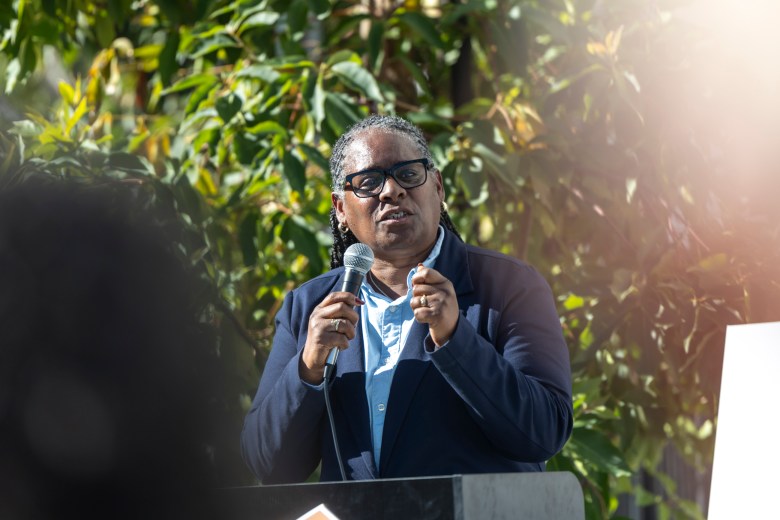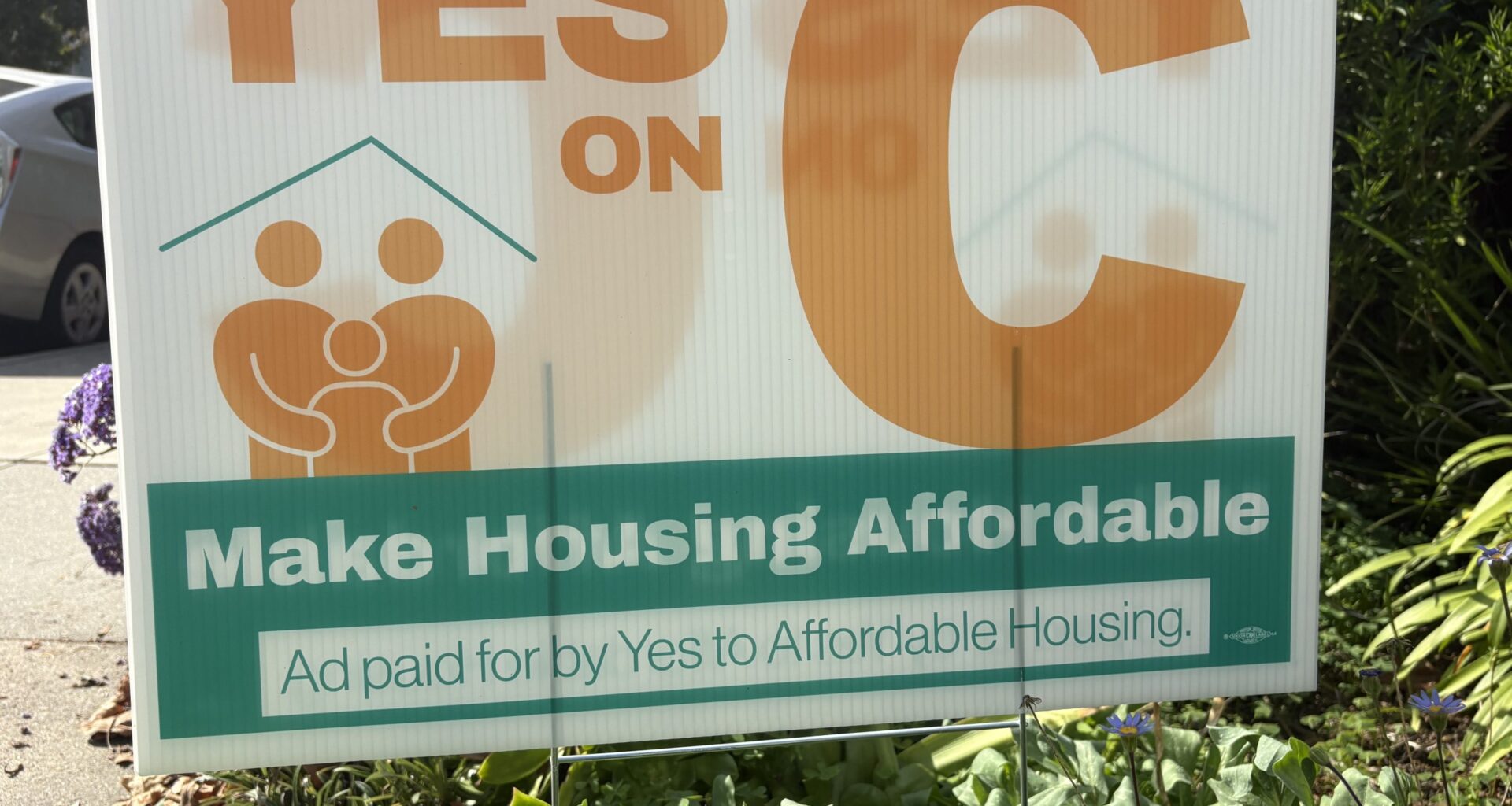Quick Take
Seniors on fixed incomes and hardworking essential workers desperately need affordable housing in Santa Cruz, writes Elaine Johnson, executive director of nonprofit Housing Santa Cruz County. Funds raised by Measure C will be deposited into the well-regarded Affordable Housing Trust Fund and subject to strict oversight measures. Johnson argues that Measure C is a balanced approach that will truly address the housing affordability crisis in the city of Santa Cruz.
Editor’s note: Measures B and C are both on the ballot on Nov. 4 for voters in the city of Santa Cruz. Lookout has featured arguments for both sides in our Community Voices opinion pages, but here, we have asked both campaigns to offer their best arguments to help voters choose. Find the piece from backers of Measure B here.
I’ve been engaged in affordable housing issues for years and Measure C is one of the most meaningful efforts we’ve seen in a long time. Measure C will have a real impact in addressing the biggest problem faced in Santa Cruz: the crisis of unaffordable housing and the impact it has on seniors, people on fixed incomes and lower-income essential workers and their families.
The vast majority (87%) of the funds Measure C will provide are legally dedicated to increasing the amount of rent-restricted affordable housing and safe interim shelter for people without any housing. And an additional portion of the funds is dedicated to reducing homelessness by providing emergency funds to prevent evictions.
All of the funds raised by Measure C will be deposited in the Affordable Housing Trust Fund. This special Santa Cruz-only fund has a great track record of providing seed funding for truly affordable housing projects, especially in downtown Santa Cruz. Several recently completed affordable housing projects in Santa Cruz were made possible through contributions from this fund, including Pacific Station South (Pacific Avenue), Water Street Apartments and Riverfront Apartments (Lindberg Street).
The projects funded by the Affordable Housing Trust Fund are legally restricted to include low rental rates. Specifically, the rates are typically about half of the amount that people are paying in the new “market rate” apartments in downtown Santa Cruz.
Measure C funds will be administered with strict accountability measures, including establishment of a financial oversight committee, annual audits and public reporting requirements. Every dollar will stay in Santa Cruz – no funds can be taken by the state or federal governments.
Residents from lower-income households who live or work in Santa Cruz need support for housing. We rely on hardworking folks in our community to deliver our health care services, food service, education for local kids, human services and so much more.
No funds from Measure C can be used to build anything for high-income tech workers from over the hill.
MORE ON MEASURES B AND C: Read Lookout news and Community Voices coverage here
I think it’s valuable to mention who supports Measure C. It’s a long list of trusted community organizations. The list includes pretty much any nonprofit related to affordable housing, as well as the Democratic Women’s Club, Indivisible, NAACP, Santa Cruz Community Health, Monterey Bay Central Labor Council, the editorial boards of Lookout Santa Cruz and the Santa Cruz Sentinel and many more that you can check out on the Yes on C website.
The list of organizations that support Measure C provide a stark contrast to the organizations that are opposed to Measure C, which include the very deep-pocketed National Association of Realtors and the California Association of Realtors, as well as the Santa Cruz County Association of Realtors.
Nearly everyone who is registered to vote in the city of Santa Cruz has probably seen the No on C attack campaign against Measure C. It is unfortunate that the real estate industry, largely from outside of Santa Cruz, has decided to spend so heavily to attack a measure that was conceived and written by a large group of community members who worked over the course of a couple of years in public to create a solution that will truly make an impact in our community.
The realtor associations decided it is in their best interests, and that of corporate landlords, to spend big money to defeat the community-driven Measure C. They even went so far as to craft their own dirty-trick countermeasure (Measure B) that will do essentially nothing to help with affordable housing in Santa Cruz, while at the same time violating the realtor associations’ own core values.
 Elaine Johnson, executive director of Housing Santa Cruz County. Credit: Kevin Painchaud / Lookout Santa Cruz
Elaine Johnson, executive director of Housing Santa Cruz County. Credit: Kevin Painchaud / Lookout Santa Cruz
We can do much better than that by voting yes on Measure C.
Measure C is a balanced approach that includes a larger contribution from those with more wealth, a modest contribution from those with some ability to pay, and exemptions for those with the least ability to pay. Homeowners who are not exempt will pay $8 per month.
Based on my experience as executive director of the nonprofit Housing Santa Cruz County and as an advocate for solutions to Santa Cruz’s affordability crisis, I believe that a well-balanced and carefully designed community investment that comes from transfer fees on the sale of higher-end homes (over $1.8 million), combined with a modest annual contribution from property owners ($96), will truly assist hundreds of our neighbors and co-workers and family members. I hope you agree, and I encourage you to vote yes on C.
Elaine Johnson is the executive director of Housing Santa Cruz County, a local nonprofit.
Have something to say? Lookout welcomes letters to the editor, within our policies, from readers. Guidelines here.

